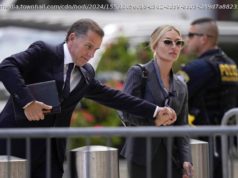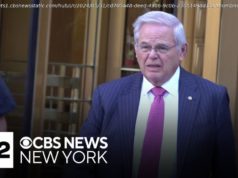President Trump on Tuesday pardoned or commuted the prison sentences of 20 people in what’s expected to be the start of a final spree of …
President Trump on Tuesday pardoned or commuted the prison sentences of 20 people in what’s expected to be the start of a final spree of presidential clemency. The Constitution gives the president nearly unfettered power to pardon people or spring them from federal prison, and throughout US history presidents faced criticism for wielding the power. One advocate told The Post last month they believe Trump could be the “most merciful” president in history in his final days in office. Here’s a look at some of the most controversial pardons and commutations in history: President James Buchanan issued a blanket pardon for Mormons, including leader Brigham Young, in exchange for the religious minority accepting US authority over Utah. This ended the more than year-long Utah War against US authorities. The conflict took a toll on civilians, including when more than 100 non-Mormon migrants en route to California were killed in the 1857 Mountain Meadows Massacre. Buchanan’s proclamation said that he was “offering to the inhabitants of Utah who shall submit to the laws a free pardon for the seditions and treasons heretofore by them committed.” In an effort to reunify the country after the Civil War, President Andrew Johnson offered a pardon to Confederate troops willing to pledge allegiance to the US government. More than 13,000 men applied for and received pardons, but some high-ranking leaders of the slave states’ rebellion were excluded. The oath required ex-Confederates to say they “will henceforth faithfully support and defend the Constitution of the United States” and “abide by and faithfully support all laws and proclamations which have been made during the existing rebellion with reference to the emancipation of slaves, so help me God.” President Jimmy Carter offered a blanket pardon to Vietnam War draft dodgers during his first full day in office, allowing thousands of young men to return to the US from Canada and other countries. Although a controversial move, Carter’s predecessor, President Gerald Ford, in 1974 offered conditional amnesty to troops who deserted during the war — a more serious crime that could result in the death penalty — if they worked two years in a public service job. On his last day in office, President Bill Clinton pardoned left-wing radicals from the 1960s and ’70s, including Hearst newspaper heiress Patty Hearst and two women affiliated with the Weather Underground.






